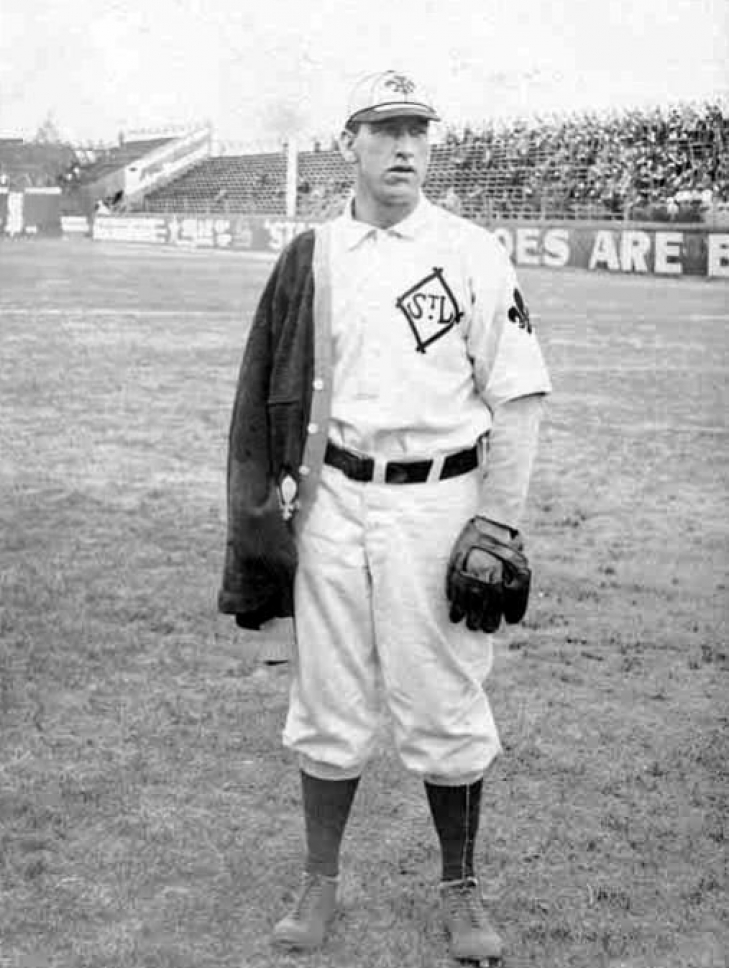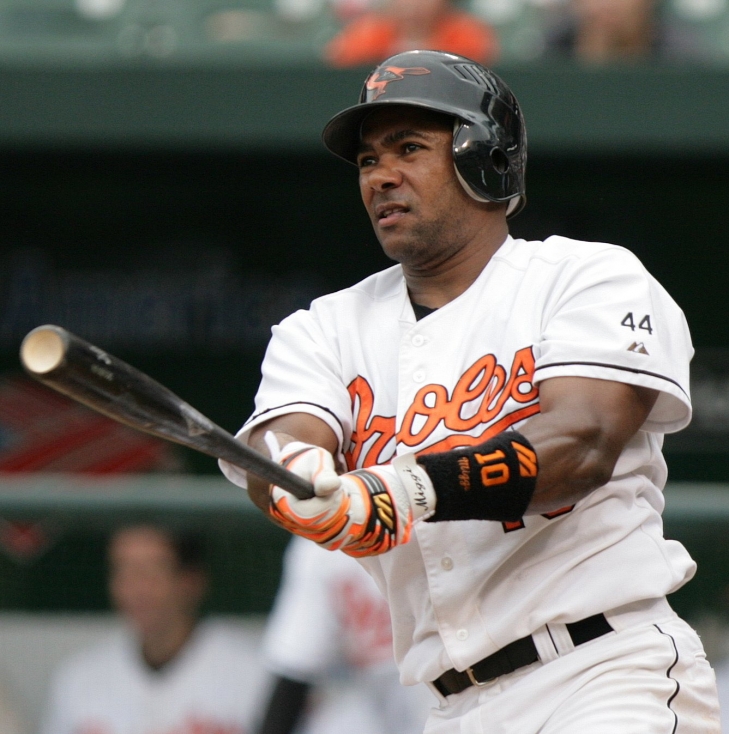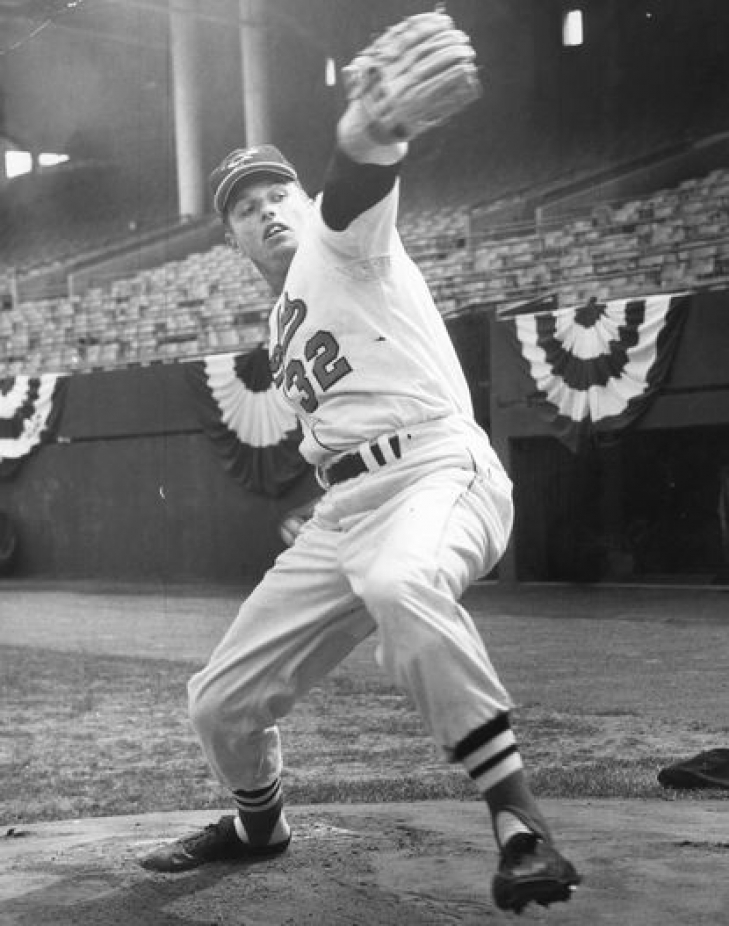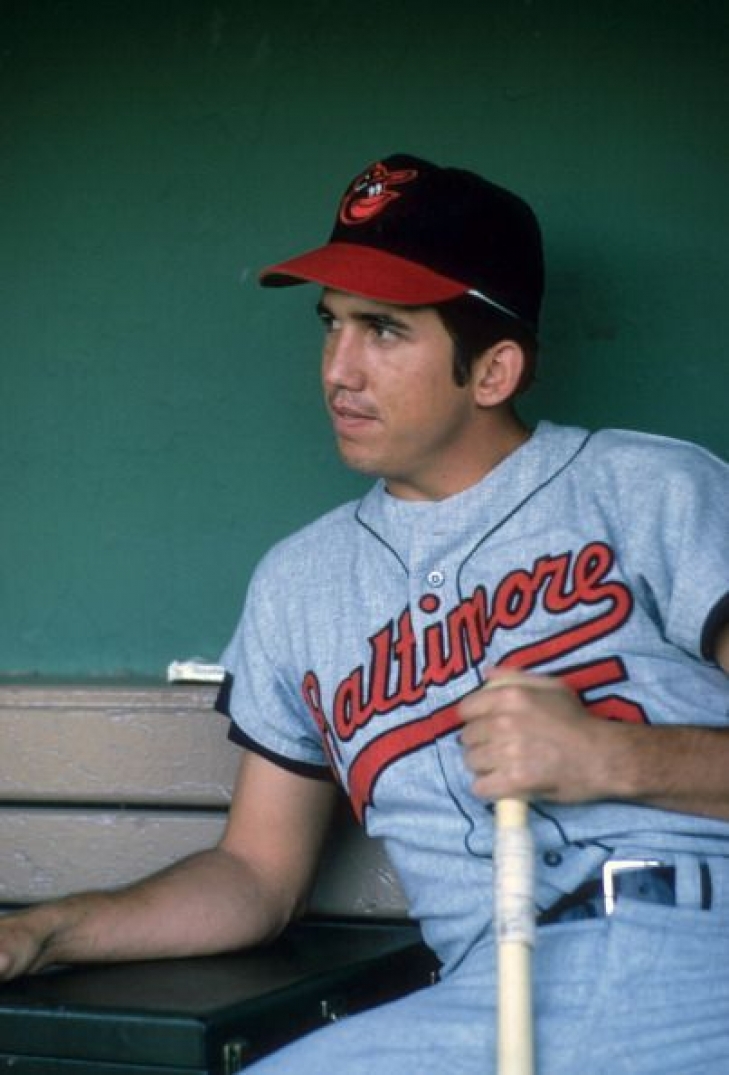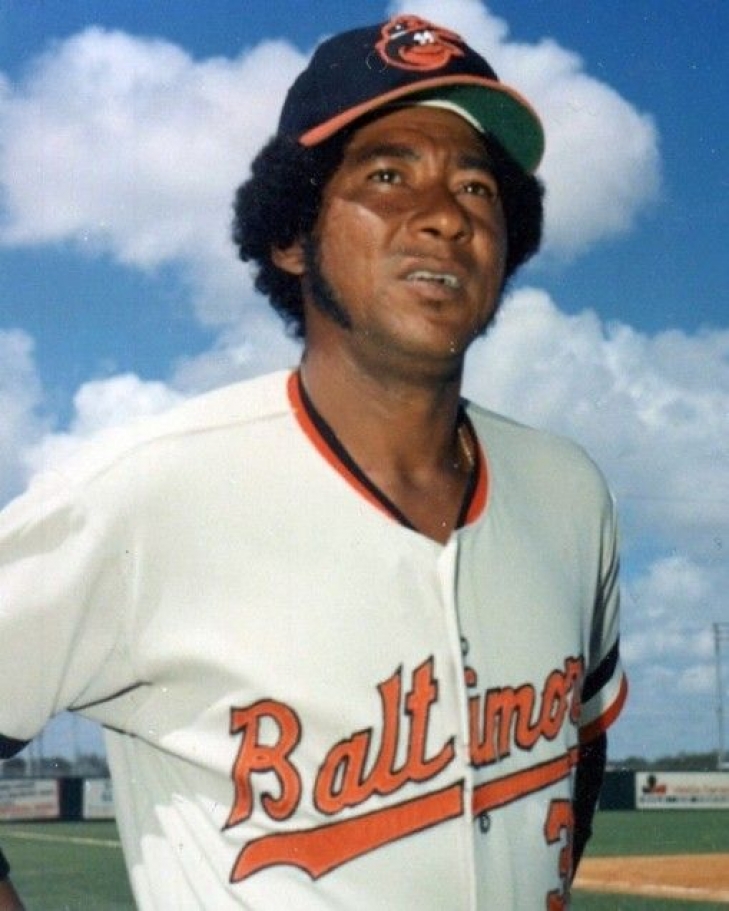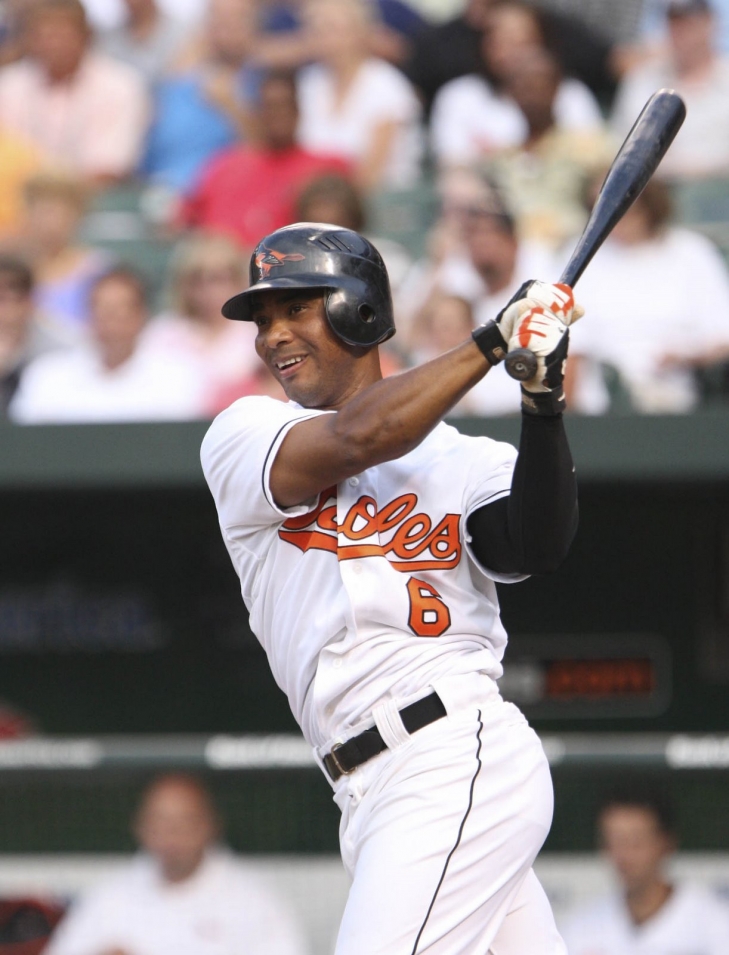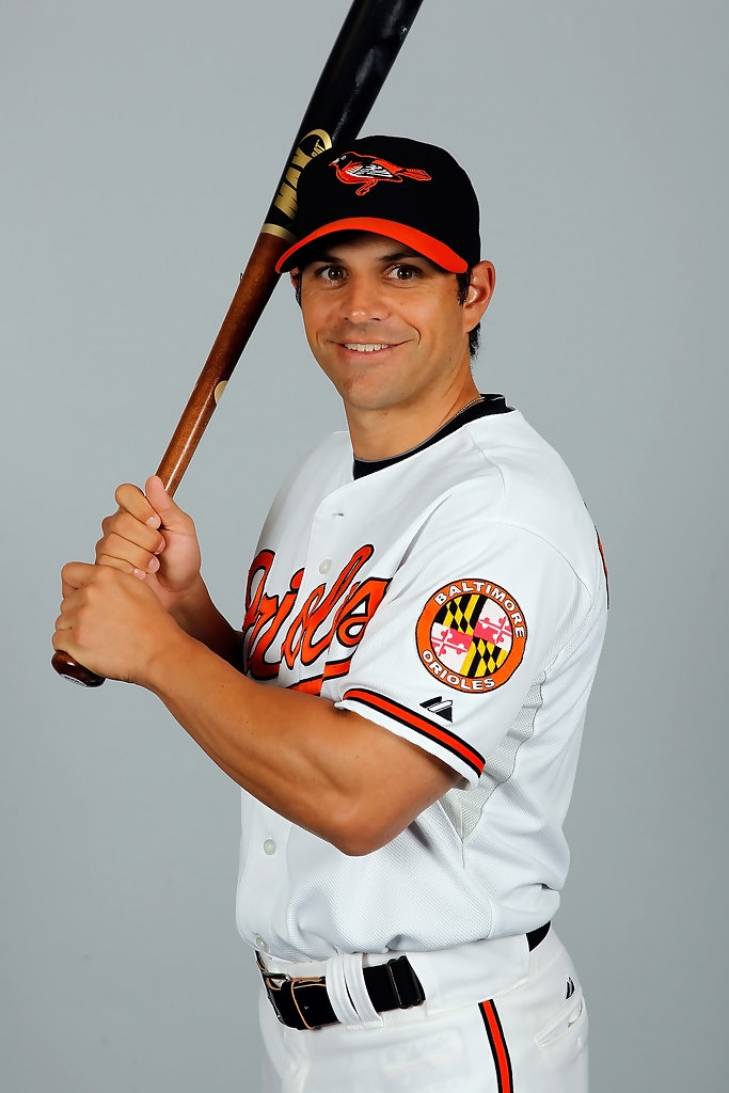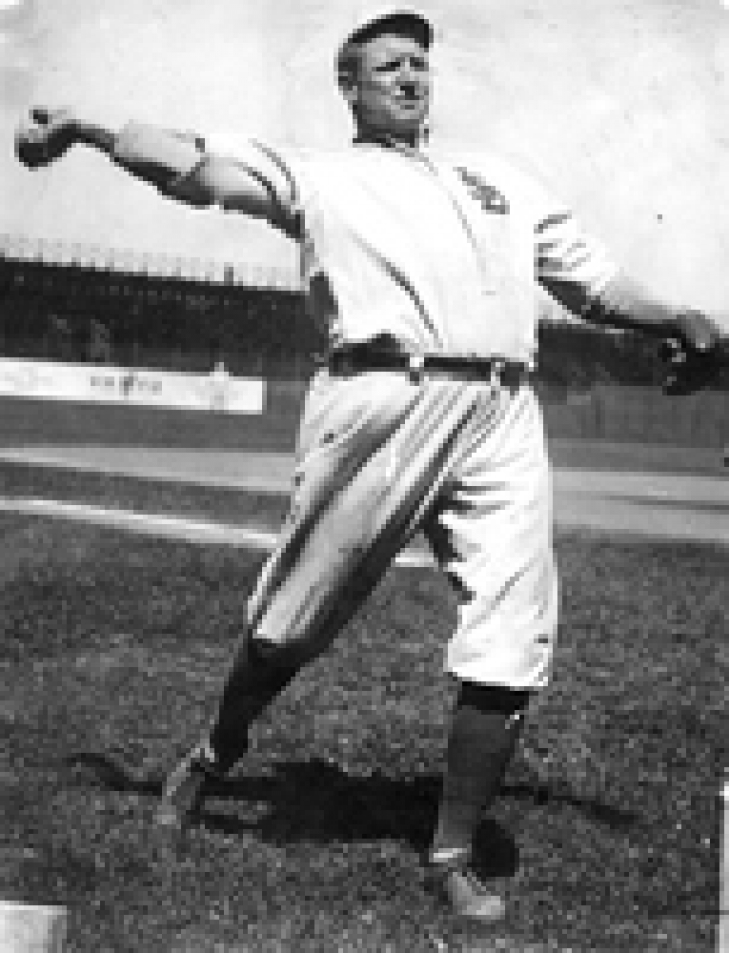44. Lefty Stewart
As you would deduce by his nickname, Walter Cleveland "Lefty," Stewart was a left-handed Pitcher, and he played most of his career with the St. Louis Browns.
34. Del Pratt
Had there been a Rookie of the Year Award in 1912, there is a good chance that Del Pratt of the St. Louis Browns would have won it. That year he batted .302 with 172 Hits, and he was close to that in 1913 with 175 Hits and a .296 Average.
35. Harry Howell
Harry Howell was traded from the New York Highlanders to the St. Louis Browns for the 1904 Season, and while he lost more games than he won, the Browns were not that good. Howell was a starter for five seasons, and he had three years where he had an ERA under 2.00, and in all of those years, his WHIP was under 1.100. In four of those years, he was in the top ten in ERA, despite his losing record.
43. Miguel Tejada
An American League MVP with the Oakland A’s in 2002, Miguel Tejada signed with Baltimore as a Free Agent in 2004, where he would spend four years.
36. Milt Pappas
Milt Pappas debuted as a teenager for the Baltimore Orioles in 1957, and a couple of years later, he was the ace of their staff. An All-Star in both 1962 and 1965, Pappas never had a losing record in Baltimore, and with the team, he was in the top ten in ERA six times and in WHIP four times.
42. Nels Potter
Nels Potter was considered to have good stuff, but the screwball specialist just couldn’t put it together, and playing for an awful team like the Philadelphia Athletics in the 1930s didn’t help. By 1942, he was back in the minors, but the St. Louis Browns would select him from the Red Sox Organization in the Rule 5 Draft.
30. Scott McGregor
Playing for the Baltimore Orioles for his entire career in the Majors (1976-88), Scott McGregor was a good Starting Pitcher who may have never been an ace but was a serviceable second or third rotation guy for years.
28. Al Bumbry
Playing all but his last 68 Games with the Baltimore Orioles, Al Bumbry had a great start winning the American League Rookie of the Year in 1973, in a season where he led the AL in Triples (11) and batted .337. The next three seasons saw a considerable drop in production, but he rebounded in 199 with a .317 year. Sadly, he regressed again.
49. Hoyt Wilhelm
Hoyt Wilhelm was only with the Baltimore Orioles for four and half seasons, but he was an All-Star in three of them, and it was his stint there that would later propel him into Cooperstown.
46. Doug DeCinces
Faced with the dreadful task of being the player who had to replace Brooks Robinson at Third Base, Doug DeCinces had some Gold Glove worthy years with Baltimore. The advanced metrics show that he was worthy of consideration, but traditionally he wasn’t there.
38. Chris Hoiles
Chris Hoiles would play his entire 10-year career with the Baltimore Orioles, and defensively he was highly regarded not just for his acumen with a glove but his skill in handling a staff.
40. Davey Johnson
In keeping with the excellent defensive players that the Baltimore Orioles had in the 1960s and 1970s, Davey Johnson was a three-time Gold Glove winner (1969-71) and would also be named to three All-Stars (1968-70).
45 Mike Boddicker
Rod Carew called Mike Boddicker’s pitch assortment, "Little League Slop." The right-hander didn't have much of a fastball, had a strange change-up, but he could throw what he had from different angles. That skill allowed him to progress well past “Little League.”
27. Mike Flanagan
Mike Flanagan was an innings eater for years for the Baltimore Orioles, and with 141 Wins is one of the most winningest Pitchers in franchise history.
32. Mike Cueller
From Cuba, Mike Cuellar began his pro career in 1959 with two Games with the Cincinnati Reds. It took until 1964 for him to make the Majors again when he threw in 32 Games for the Cardinals, and he came into his own in Houston where he played four years before being traded to the Orioles at the end of the 1968 season. At age 32, the fans of Baltimore likely did not expect much, but they got what was by far the best run of his career.
31. Ned Garver
When Ned Garver played for the St. Louis Browns, the franchise was awful.
39. George McQuinn
Plucked from the Yankees organization in the Rule 5 Draft after the 1937 season, George McQuinn had his best seasons with the St. Louis Browns.
23. Melvin Mora
Melvin Mora was traded during the 2000 season from the New York Mets, and he would be used as an Outfielder for his first few years before becoming their Third Baseman in 2004.
24. Brian Roberts
Brian Roberts played for the Baltimore Orioles for the first 13 years of his 15-year career, and with the Orioles, his best asset was his speed.
20. Jack Powell
Jack Powell was with the St. Louis Browns for ten seasons over two runs, and while he may have had a losing record (117-143), it was more of an indictment of the team he played for.




